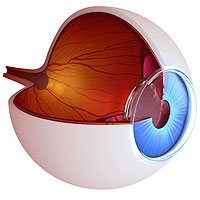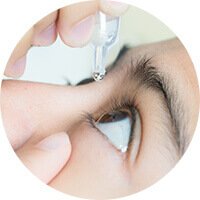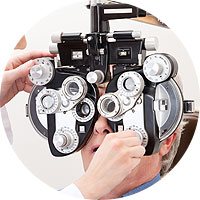
Removing your cataracts during surgery is a lot safer than you might think. With a success rate of around 98%, cataract surgery is one of the most well-understood operations in the world.
This is due to the efforts of researchers. They are always improving cataract removal technology and techniques. This allows them to better serve the public.
These days, most surgeons prefer the precision offered by laser technology over the traditional blade that was used to perform cataract surgery.
Lasers can detect the exact location, size, and depth to make incisions. Traditional cataract surgery is done by hand.
While it’s still very safe, it may not end up correcting your vision to the same degree that a laser can achieve. The precision afforded by lasers makes the surgery shorter.
It may even provide better levels of correction under certain circumstances. Keep reading to find out what makes laser cataract surgery worth it!
How Cataract Surgery Works
Cataract surgery begins with numbing eye drops applied to your eyes to block pain. The surgeon will then create an opening in your cornea with a laser so they can access the pupil.
The leftover corneal tissue is left attached by a small amount. This allows it to be closed later on. The surgeon will then use another laser to soften the lens, located just behind the pupil.
Then, the lens is completely broken apart using a process called phacoemulsification. Phacoemulsification uses high-frequency ultrasonic waves to achieve this.
After making the pieces small enough, they are then carefully extracted through the pupil to make room for an IOL. IOLs (short for intraocular lenses) are devices designed to replace your natural lens.
In their most basic form, IOLs are able to provide sight at one set distance. This means that with this IOL (a monofocal lens) you will need to use glasses to make up for either your close up vision or your distance sight.
But there are a variety of premium IOL options available that can give you great vision with a range of depth of focus. When the IOL is in place, the cornea is then closed and left to reattach itself.
You will then rest for a short period before going home. Make sure to schedule a ride to and from the surgery suite. You won’t be able to drive yourself.
To learn more about your IOL options and which is the best fit for you, schedule a cataract surgery screening at Eye Care Specialists. You’ll learn the ins and outs of cataract surgery, how to prepare, and what life is like after. Bring any questions you have with you!
Quick Recovery Tips
Recovering from cataract surgery will also be covered in your screening, but here are some tips to make it easier:
- Plan on being less active for a couple of weeks at least. Any amount of pressure on your eyes could cause damage to the healing cornea.
- Avoid water making any contact with your eyes as it could carry harmful bacteria and germs. This is true even with clean tap water.
- Rest is important for the healing process.
- Attend follow-up appointments to check in with your doctor. This is the only way to make sure your recovery is right on track.
Have questions about laser cataract surgery and if you may need it? Schedule your cataract screening at Eyecare Specialists in Berwick, PA today!
If cataracts are standing in the way of living your best life, it’s time to learn more about having them removed!

















